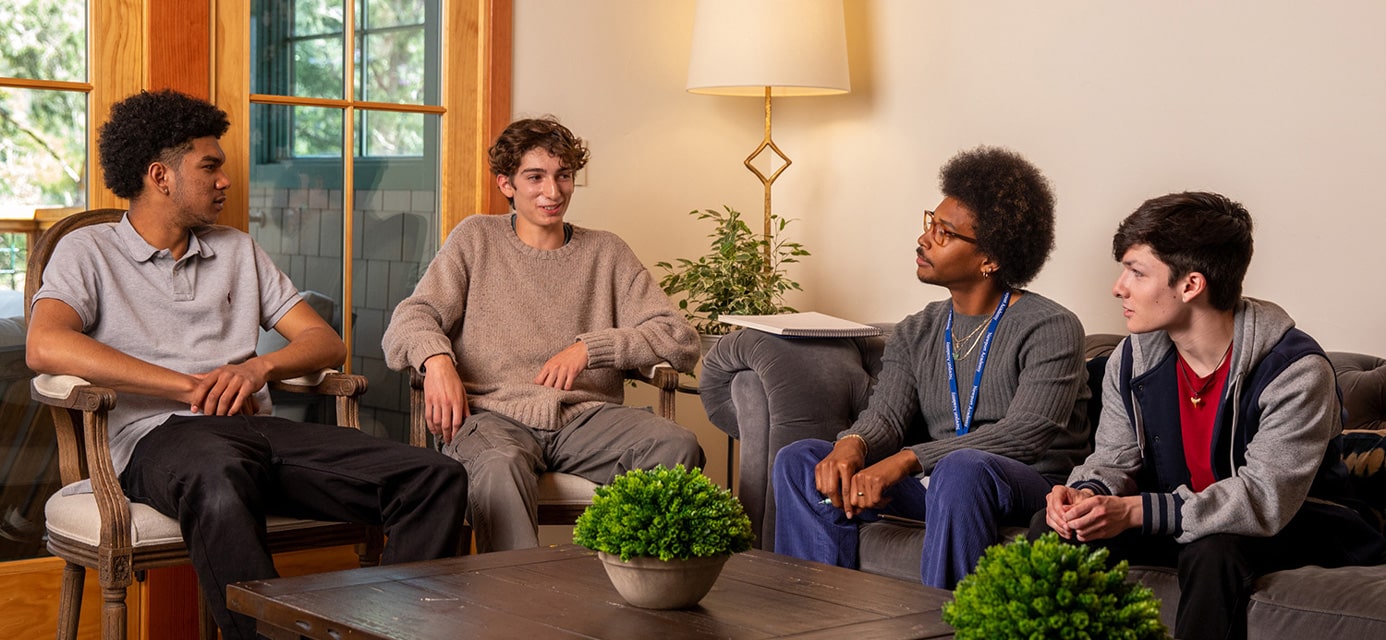How counselling for teens empowers communication
How Teenager Treatment Can Promote and equip young minds Development
Teenager therapy plays an essential function in shaping the mental wellness of adolescents. It attends to the distinct obstacles they deal with, fostering psychological recognition and durability. By discovering different therapeutic methods, young people can develop vital coping strategies. This procedure not only aids in personal development but also improves their capability to browse partnerships. Recognizing the characteristics of this therapeutic trip reveals much deeper understandings into exactly how it can fundamentally modify their course towards the adult years.
Comprehending the Relevance of Mental Health And Wellness in Teenagers
Why is mental health and wellness important for teens throughout their developmental years? This period is marked by rapid physical, emotional, and cognitive modifications. Teens frequently navigate complicated social dynamics, academic pressures, and the pursuit for identification, making mental health and wellness an important part of their total wellness. Healthy frame of minds permit teens to develop resilience, grow self-esteem, and manage anxiety efficiently. Furthermore, dealing with mental wellness problems early can stop lasting mental difficulties, allowing teenagers to thrive academically and socially.
Understanding mental wellness in young adults includes recognizing the one-of-a-kind difficulties they encounter. Understanding and support can cultivate open communication, enabling young individuals to reveal their sensations and look for assistance when needed. By prioritizing mental health and wellness, society can equip teenagers to develop coping approaches, create healthy connections, and achieve their full possibility. Inevitably, supporting psychological health during these formative years lays the foundation for a well balanced, meeting adulthood.
Common Challenges Dealt With by Adolescents
Adolescents commonly run into numerous obstacles that can substantially impact their mental health and wellness. Psychological regulation battles, peer pressure dynamics, and scholastic anxiety management prevail problems that form their experiences. Resolving these challenges is vital for fostering strength and empowerment in teenagers.
Emotional Regulation Battles
Lots of teenagers experience significant psychological law battles as they browse the complexities of adolescence. This developmental phase is noted by varying emotions, often causing difficulty handling sensations such as anger, anxiousness, and despair. Young people may locate themselves overwhelmed by their psychological actions, leading to impulsive actions or withdrawal. Variables such as hormone modifications, social stress, and scholastic challenges worsen these battles. Lots of teens do not have the coping methods necessary to express their feelings appropriately, which can lead to disputes in connections and impede personal growth. Additionally, feelings of seclusion may arise, as they commonly think their experiences are unique. Identifying and dealing with these emotional policy issues with treatment can equip adolescents to develop much healthier coping mechanisms and foster resilience.
Peer Pressure Characteristics
Browsing the emotional turbulence of teenage years often brings teenagers in person with peer stress dynamics. This effective influence can considerably shape their selections, habits, and self-image. Teens may really feel obliged to comply with their peers' expectations, leading to risky habits, such as substance use or harmful relationships. The wish for acceptance and fear of being rejected magnify these stress, commonly causing internal conflict. Young adults may have a hard time to assert their individuality, being afraid backlash from their colleagues. Treatment can supply a secure room for young people to explore these characteristics, enabling them to establish techniques for withstanding adverse impacts (therapist for teens near me). With empowerment and self-awareness, teenagers can learn to browse peer stress much more successfully, cultivating durability and advertising much healthier decision-making

Academic Stress And Anxiety Management
How do scholastic stress affect the well-being of young adults? For several teens, the search of high qualities and university readiness usually leads to overwhelming stress. This anxiety manifests in various means, consisting of anxiety, anxiety, and physical health and wellness concerns. The concern of failing and the unrelenting competitors can produce a hazardous atmosphere that hinders social and psychological growth. Furthermore, unrealistic assumptions from instructors and parents can intensify sensations of insufficiency. Teenagers may have a hard time to balance academics with after-school activities, further intensifying their stress degrees. Effective academic anxiety monitoring techniques, such as time monitoring, relaxation methods, and seeking support, end up being crucial. By addressing these obstacles, treatment can encourage adolescents to develop much healthier coping mechanisms, promoting resilience and promoting total wellness.
The Function of Treatment in Teenage Development
As teens transition through the intricacies of teenage years, treatment becomes a crucial support system, fostering emotional strength and personal growth. Throughout this formative duration, young adults grapple with identification, peer stress, and psychological turmoil. Treatment offers a safe area for them to discover their feelings, ideas, and behaviors without judgment. This exploration enhances their self-awareness, enabling them to recognize their emotions and reactions extra deeply.
In addition, therapy assists teenagers establish coping methods to manage stress and anxiety and anxiety, crucial skills that will benefit them throughout life. By involving in healing discussions, teens discover to express their demands and establish healthier partnerships. This process not just promotes private development but also adds to much better interaction and problem resolution abilities. Eventually, treatment offers as a crucial tool in leading teens toward positive growth, equipping them to navigate the difficulties of adolescence with self-confidence and strength
Techniques Used in Teenager Treatment
In teen therapy, numerous techniques are employed to promote empowerment and personal development. Cognitive Behavioral Strategies concentrate on improving adverse idea patterns, while Meaningful Arts Therapies urge self-discovery with imaginative expression. With each other, these methods supply teenagers with valuable devices to browse their psychological and emotional obstacles.
Cognitive Behavior Methods
Cognitive Behavioral Strategies (CBT) play a crucial duty in young adult treatment, particularly as they attend to the distinct obstacles encountered during teenage years. These techniques concentrate on determining and customizing adverse thought patterns that add to psychological distress and behavior problems. By encouraging young adults to check these guys out acknowledge illogical ideas and replace them with positive ideas, CBT promotes strength and coping approaches. Therapists often utilize devices such as thought documents, behavior experiments, and direct exposure jobs to aid teens confront their worries and establish healthier feedbacks. CBT stresses goal-setting, which encourages teens to take ownership of their progress. This structured method not only minimizes symptoms of anxiety and clinical depression but additionally outfits young individuals with abilities to browse life's difficulties better.
Expressive Arts Therapies
While standard talk therapies might not reverberate with every teen, Meaningful Arts Treatments offer an alternate method that takes advantage of creative thinking as a method of self-expression and recovery. This approach includes various art types, consisting of paint, drama, dance, and music, enabling teens to communicate emotions and experiences that might be hard to articulate verbally. Involving in these creative procedures can foster self-discovery, boost confidence, and assist in emotional handling. The non-judgmental environment of expressive arts enables teens to discover their identifications and cope with obstacles in a helpful setting. By incorporating expressive arts right into treatment, professionals can supply a holistic strategy that not only addresses psychological battles yet also empowers young minds to grow and grow.
Structure Strength With Therapeutic Practices
As teens browse the complexities of their developmental years, constructing durability through healing practices comes to be crucial for their psychological wellness. Reliable restorative strategies, such as cognitive-behavioral therapy and mindfulness techniques, empower young adults to challenge challenges and develop coping techniques. By learning to identify and handle their feelings, young individuals can cultivate a better sense of self-efficacy.

Involving in therapy enables teens to discover their ideas and sensations in a safe environment, advertising adaptability when faced with misfortune. This procedure urges them to watch troubles as opportunities for growth instead of impossible barriers. Team therapy setups better boost durability by offering and fostering social links peer assistance, strengthening the idea that they are not the only one in their struggles.
Eventually, therapeutic methods act as crucial devices, furnishing teens with the skills required to navigate life's hurdles and emerge stronger and a lot more resilient in their journey toward adulthood.
The Long-Term Advantages of Engaging in Treatment
Participating in therapy throughout adolescence can produce considerable long-lasting advantages that expand well right into adulthood. By attending to psychological and emotional difficulties early, young adults can create much healthier coping systems that linger throughout their lives. Therapy fosters self-awareness, equipping young people to understand their sensations and ideas much better, which can cause improved decision-making abilities.
Additionally, regular therapeutic interaction can enhance interpersonal connections. Teenagers usually find out reliable communication and conflict-resolution techniques, which can enhance connections with peers, household, and future coworkers. This structure of emotional knowledge typically leads to raised durability versus stress and adversity.
In addition, individuals that take part in therapy throughout their formative years may experience minimized threats of mental wellness concerns later on in life. Eventually, early therapeutic treatment outfits teenagers with essential devices for navigating life's complexities, promoting both individual development and overall health as they shift right into adulthood.
Frequently Asked Questions

How Can Parents Assistance Their Teenagers During Treatment Sessions?
Parents can sustain their Clicking Here teens during treatment sessions by proactively paying attention, respecting their privacy, encouraging open interaction, and validating their feelings. They need to additionally stay individual and understanding as their teens browse the healing procedure.
What Should a Young adult Expect in Their First Treatment Consultation?
In their initial treatment appointment, a teenager can expect an introductory discussion, discussing their sensations and worries. The therapist will certainly produce a risk-free setting, establish goals, and explain privacy to foster count on and openness.
Are There Age Boundary for Teenagers Looking For Therapy?
There are normally no strict age limitations for teens looking for treatment; nonetheless, solutions may vary by copyright - counselling for teens. Most therapists think about clients aged 13 to 19, while younger youngsters might site here require parental participation or alternate sources
Exactly How Can Teens Find a Specialist They Link With?
Teens can find a therapist by looking for referrals from trusted adults, researching on-line directories, or using college resources. Structure connection with preliminary consultations helps make certain a comfortable connection, crucial for effective therapy and individual development.
Is Online Therapy Efficient for Teens?

Online therapy can be efficient for teens, giving adaptability and ease of access. Many young people value the convenience of online sessions, which can boost openness and promote interaction, inevitably adding to their emotional health and individual development.
Teenager therapy plays a crucial function in forming the psychological wellness of adolescents. In teenager therapy, numerous strategies are utilized to foster empowerment and personal development. Cognitive Behavior Techniques (CBT) play an essential function in young adult therapy, specifically as they resolve the distinct difficulties dealt with during teenage years. While traditional talk therapies might not resonate with every teen, Expressive Arts Therapies supply a different technique that utilizes creativity as a method of self-expression and recovery. Efficient therapeutic approaches, such as cognitive-behavioral treatment and mindfulness strategies, equip teens to confront difficulties and develop coping techniques.